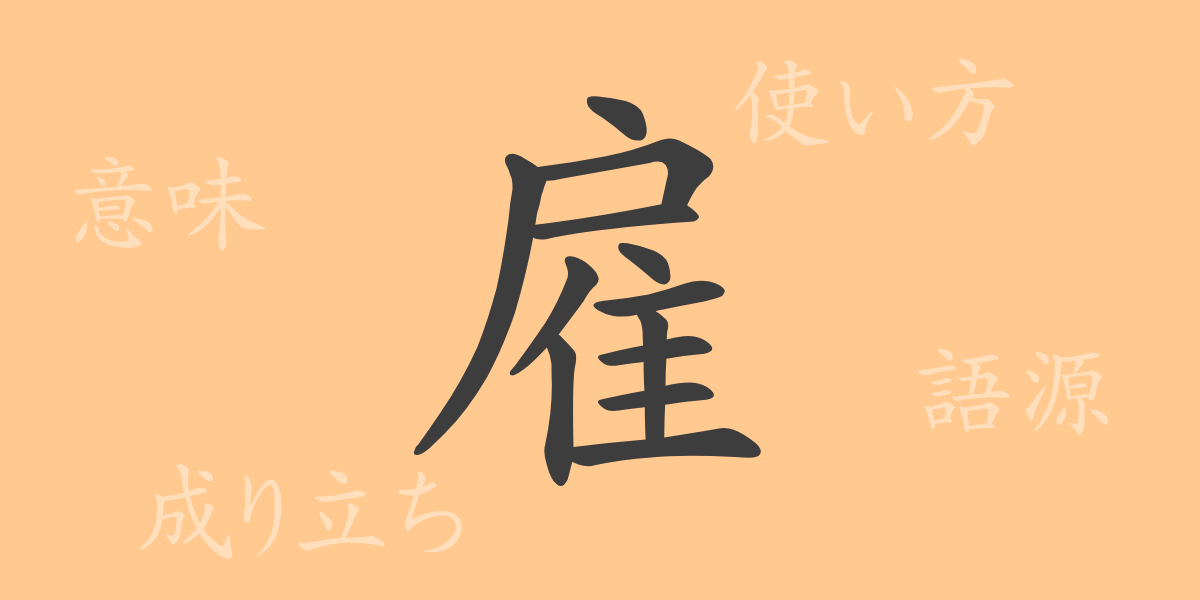The beauty of the Japanese language lies in its complexity and depth. Each character is a testament to layers of culture and history. This time, we focus on the common kanji “雇” (こ, やとう) and delve into its origins and modern usage. Join us as we explore the world of “雇,” a character frequently used in the business scene.
Origin of 雇 (Etymology)
The kanji “雇” (こ, やとう) is an ancient character originating from China. Its origin is tied to the character “賈” (か), which means contract or transaction. Over time, “賈” evolved to convey the idea of connecting people and resources. The character was adopted into Japanese to describe the act of working for someone else.
Meaning and Usage of 雇
The character “雇” (こ, やとう) means to employ or to be employed. In a business context, it often refers to employment contracts and labor relations, making it a fundamental concept in economic activities. It is used in various forms, such as “雇う” (やとう, to employ), “雇入れる” (やといれる, to hire), and “雇用” (こよう, employment), indicating the relationship between workers and employers.
Reading, Stroke Count, and Radical of 雇
The kanji “雇” (こ, やとう) holds a specific place in the Japanese writing system with its unique readings and structure.
- Reading: The On’yomi (音読み) is “コ” (こ), and the Kun’yomi (訓読み) is “やとう” (やとう).
- Stroke count: It consists of 12 strokes.
- Radical: The radical is “雨” (あめかんむり), which signifies rain.
Idioms, Phrases, and Proverbs Using 雇
Many idioms and phrases include the character “雇” (こ, やとう), reflecting its meanings. For instance, “雇用契約” (こようけいやく) refers to an employment contract, “解雇” (かいこ) means dismissal or termination of employment, and “雇い主” (やといぬし) denotes the employer. These terms are frequently used in everyday communication and business contexts.
Conclusion About 雇
Each kanji carries deep meanings, evolving with culture and society. The character “雇” (こ, やとう) is no exception, playing a significant role in people’s lives and economic activities. Through this article, we hope you gain a deeper understanding of the history and meaning behind “雇” (こ, やとう) and appreciate the richness of the Japanese language.

























